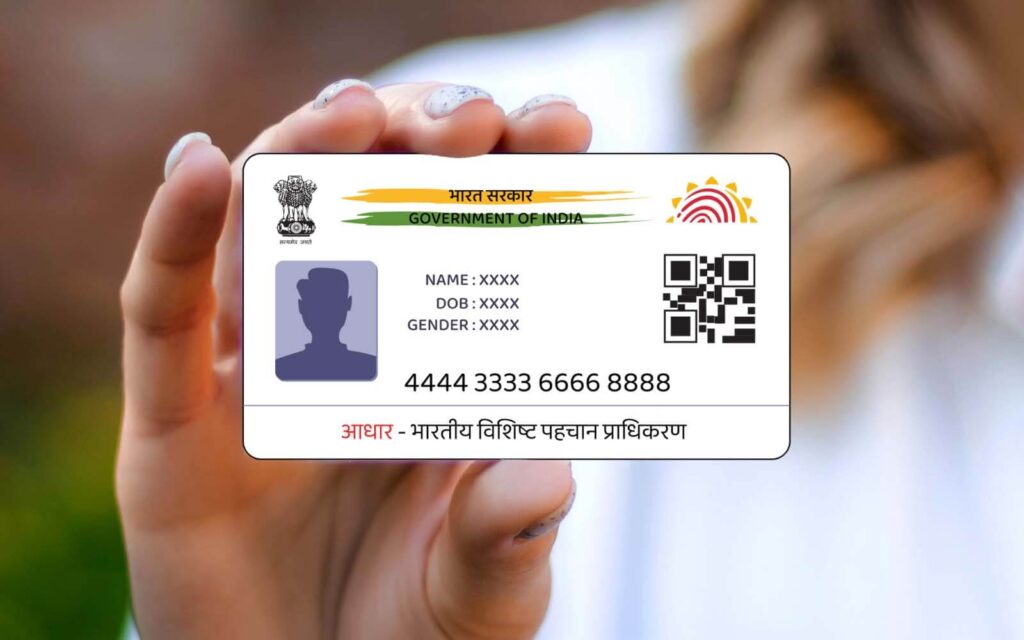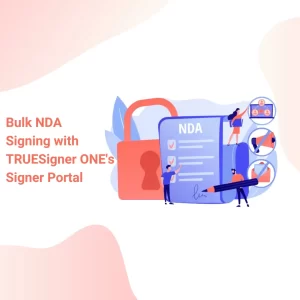From the data protection perspective, the Aadhaar-based eSignature solution’s safety depends on several variables, such as the service provider’s security measures, compliance with legal requirements, and the general strength of the authentication procedure. The following are important things to remember:

- Features of Aadhaar Security: The digital signature system based on Aadhaar utilizes the government-issued unique identifying number. Biometric authentication and a one-time password (OTP) for extra verification are among the security elements included in Aadhaar itself.
- Service Provider Protection: The security protocols put in place by the service provider providing the eSignature solution also impact the security of Aadhaar-based eSignatures. To protect user information, trustworthy suppliers use encryption, secure servers, and adherence to data protection regulations.
- Regulatory Compliance: It is essential to ensure that rules about data protection, including the Aadhaar Act, are followed. Service providers must abide by legislative frameworks and regulations to safeguard user data and preserve the integrity and confidentiality of the electronic signature process.
- User Control and Consent: Users should be in charge of their Aadhaar data and express their permission for the usage in eSignature procedures. User experience can be safer by implementing consent methods and transparent privacy rules.
- Audit Trails and Monitoring: To keep track of and evaluate eSignature actions, sufficient audit trails and monitoring systems need to be set up. This aids in the detection of any potential security breaches or illegal access.
- Data Encryption: Aadhaar-related data should be encrypted during transmission and storage to avoid unwanted access. This guarantees the confidentiality of sensitive data during the eSignature procedure.
- Secure Authentication: To improve security and stop unwanted access, the eSignature procedure should incorporate multi-factor authentication, such as OTP verification.
When using Aadhaar-based eSignatures, consumers and suppliers must put data protection first. A secure eSignature experience is ensured by using reliable services like Truecopy, comprehending terms, and remaining up-to-date on legislation. When providing Aadhaar details, users should use caution and ensure providers adhere to best practices for data protection.
Aadhaar eSigner was introduced by Truecopy in 2017 in line with the Digital India program in India. This creative program uses Aadhaar numbers to enable digital signatures, which change contracts and transactions. It improves efficiency and reduces paper use in various contexts, including business settings and online marketplaces, helping to create a paperless and environmentally sustainable India.
How eStamp is catalyzing Aadhaar-Based Digital Signatures
E-stamping is referred to as an online method of paying non-judicial stamp duty to the government. By paying the required stamp duty to the government, a contract becomes legally valid through stamping. The stamping process verifies the transaction and makes the contract enforceable in a court of law.
This legally valid contract can be signed by multiple parties online using the Aadhaar eSign platform which will streamline the entire process.
Summing up
Beyond only a safe electronic signature, Aadhaar-based eSign develops into a dynamic tool that boosts online transaction efficiency. Adding a feature like eStamping can make users’ life easy. They can procure eStamp papers online and sign the documents digitally anytime, anywhere.
Truecopy, the leading provider of the digital signature platform called TRUESigner ONE, offers a comprehensive and user-friendly platform, extending its advantages through seamless integration. This approach, supported by Truecopy’s experience, guarantees the legitimacy of digital signatures. It supports easy procurement of e-stamp papers from different states of India and paves the way for safe, effective, and easily accessible online contract signing in the future.






